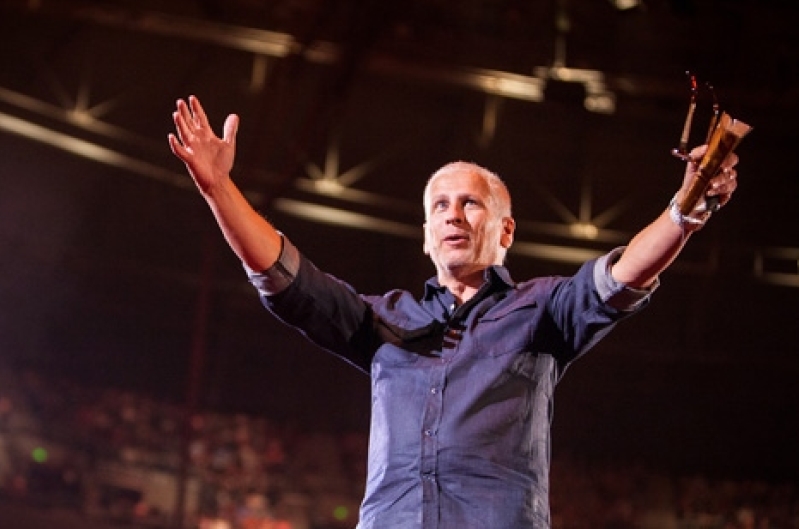
Rev. Louie Giglio was invited by President Barack Obama to deliver the benediction prayer at his January 21 inauguration; however, Giglio later decided to withdraw his acceptance to avoid becoming part of the gay debate.
Shortly after Giglio’s acceptance, pro-gay activists and liberals came out with reports that featured audio from a mid-90s Giglio sermon, where the pastor said that homosexuality is a sin and that there is an aggressive agenda against traditional family stances.
Josh Israel, senior investigative reporter for “Think progress”, a popular liberal site, wrote a column pointing out that Giglio’s “anti-gay” stance and opinion that homosexuality is comparable to alcoholism to be particularly disturbing.
"In a mid-1990s sermon identified as Giglio's, available online on a Christian training website, he preached rabidly anti-LGBT views," wrote Israel. "The 54-minute sermon … advocates for dangerous 'ex-gay' therapy for gay and lesbian people, references a biblical passage often interpreted to require gay people be executed, and impels Christians to 'firmly respond to the aggressive agenda' and prevent the 'homosexual lifestyle' from becoming accepted in society."
In the sermon referenced by Thinkprogress, Giglio said, “we must lovingly but firmly respond to the aggressive agenda of not all, but of many in the homosexual community… Underneath this issue is a very powerful and aggressive movement. That movement is not a benevolent movement, it is a movement to seize by any means necessary the feeling and the mood of the day, to the point where the homosexual lifestyle becomes accepted as a norm in our society and is given full standing as any other lifestyle, as it relates to family.”
Then, several other websites picked up the audio and described Giglio as an “anti-gay pastor” whose sermon is causing controversy, in light of President Obama commenting in May 2012 that he now supports homosexual marriage.
Until this week, Giglio was best known for his series of Passion Conferences that focus on gathering Christian students from around the nation to combat human trafficking or modern-day slavery. The most recent conference at the Georgie Dome gathered 60,000 people.
Giglio explains in his Jan. 10 letter to the White House that he does not wish to be a part of that narrative surrounding homosexuality, and the goals and missions of his ministry are focused on different pursuits.
“Neither I, nor our team, feel it best serves the core message and goals we are seeking to accomplish to be in a fight on an issue not of our choosing, thus I respectfully withdraw my acceptance of the President’s invitation.” Giglio wrote. “I will continue to pray regularly for the President, and urge the nation to do so. I will most certainly pray for him on Inauguration Day.”
In conclusion, the Georgian ministry wrote, “Our nation is deeply divided and hurting, and more than ever need[s] God’s grace and mercy in our time of need.”
During last year’s Easter Prayer Breakfast at the White House, Giglio presided over the event, where Obama praised him for campaign to end modern-day slavery. Recently, Giglio inspired students to raise $3.5 million to support more than 20 global projects that focus on prevention, rescue, and restoration for the 27 million men, women, and children who are victims of slavery.
In describing his relationship with the president, Giglio wrote, “Though the President and I do not agree on every issue, we have fashioned a friendship around common goals and ideals, most notably, ending slavery in all its forms.”






